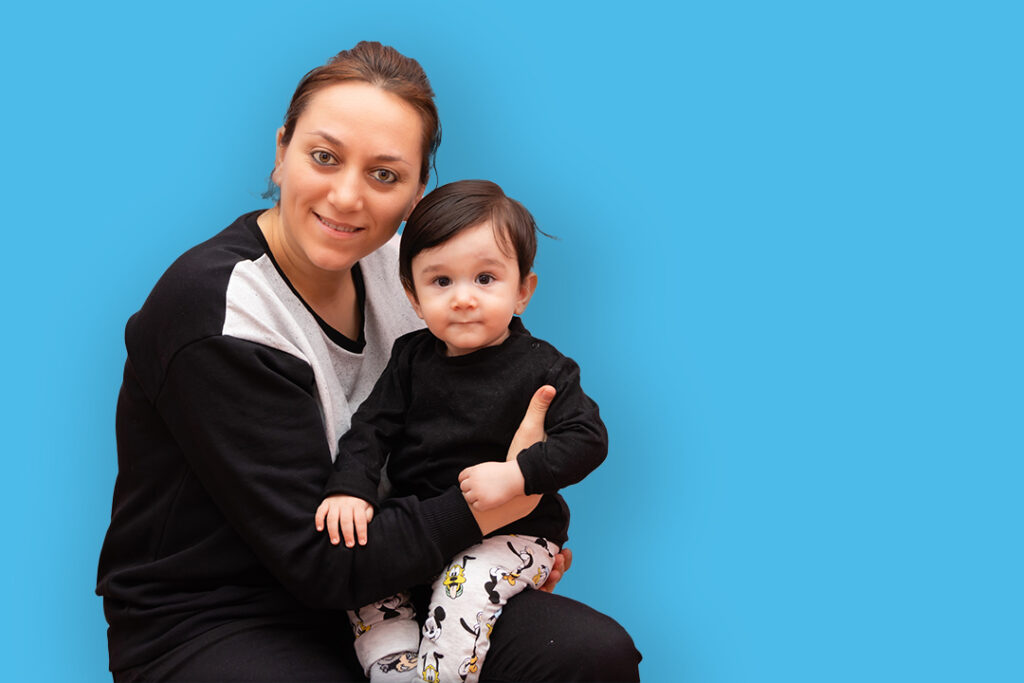NICE Guidelines: Antisocial behaviour and conduct disorders in children and young people. 2013. https://www.nice.org.uk/guidance/cg158
National Academy Parenting Research. https://www.kcl.ac.uk/ioppn/depts/cap/research/napr/index.aspx
Jacobs, B. Parenting the Child with Issues. MindEd, 2016
https://mindedforfamilies.org.uk/Content/parenting_the_child_with_issues/#/id/59e5c70d779fae116f09fac7
Kelvin, R. Anger and Aggression. MindEd, 2016
https://mindedforfamilies.org.uk/Content/common_problems_anger_and_aggression/#/id/5a8c0bf22467748f64fe6f98
Conduct problems
Erskine, H. E., Norman, R. E., Ferrari, A. J., Chan, G. C. K., Copeland, W. E., Whiteford, H. A., & Scott, J. G. (2016). Long-term outcomes of Attention-Deficit/Hyperactivity Disorder and Conduct Disorder: A systematic review and meta-analysis. Journal of the American Academy of Child and Adolescent Psychiatry, 55, 841-850. doi:10.1016/j.jaac.2016.06.016
Polanczyk, G. V., Salum, G. A., Sugaya, L. S., Caye, A., & Rohde, L. A. (2015). Annual research review: A meta-analysis of the worldwide prevalence of mental disorders in children and adolescents. Journal of Child Psychology and Psychiatry, 56, 345-365. doi:10.1111/jcpp.12381
Rivenbark, J. G., Odgers, C. L., Caspi, A., Harrington, H., Hogan, S., Houts, R. M., Poulton, R., & Moffitt, T. E. (2018). The high societal costs of childhood conduct problems: evidence from administrative records up to age 38 in a longitudinal birth cohort. Journal of Child Psychology and Psychiatry, 59, 703-710. doi:10.1111/jcpp.12850
Parenting as a risk factor
Farrington, D. P., Gaffney, H., & Ttofi, M. M. (2017). Systematic reviews of explanatory risk factors for violence, offending, and delinquency. Aggression and Violent Behavior, 33, 24-36. doi:10.1016/j.avb.2016.11.004
Farrington, D., & Welsh, B. C. (2007). Saving children from a life of crime: Early risk factors and effective interventions. New York, NY: Oxford University Press.
Gach, E. J., Ip, K. I., Sameroff, A. J., & Olson, S. L. (2018). Early cumulative risk predicts externalising behaviour at age 10: The mediating role of adverse parenting. Journal of Family Psychology, 32, 92-102. doi:10.1037/fam0000360
Patterson, G. R. (1982). Coercive family process (Vol. 3). Eugene, OR: Castalia Publishing Company.
Effectiveness of parent training
Barlow, J., & Coren, E. (2018). The effectiveness of parenting programs: A review of Campbell reviews. Research on Social Work Practice, 28, 99-102. doi:10.1177/1049731517725184
Duncan, K. M., MacGillivray, S., & Renfrew, M. J. (2017). Costs and savings pf parenting interventions: results of a systematic review. Child: Care, Health and Development, 43, 797-811. doi:10.1111/cch.12473
Forgatch, M. S., & Gewirtz, A. H. (2017). The Evolution of the Oregon Model of Parent Management Training: An intervention for antisocial behaviour in children and adolescents. In: J. R. Weisz & A. E. Kazdin (Eds.), Evidence-Based Psychotherapies for Children and Adolescents (pp. 85-102). New York, NY: Guildford Press.
Furlong, M., McGilloway, S., Bywater, T., Hutchings, J., Smith, S.M., & Donnelly, M. (2012). Behavioural and cognitive-behavioural group-based parenting programmes for early-onset conduct problems in children aged 3 to 12 years (Cochrane review). Cochrane Database for Systematic Reviews, 2, 1-362. doi:10.1002/14651858.CD008225.pub2
Hendriks, A. M., Bartels, M., Colins, O. F., & Finkenauer, C. (2018). Childhood aggression: A synthesis of reviews and meta-analyses to reveal patterns and opportunities for prevention and intervention strategies. Neuroscience & Biobehavioral Reviews, 91, 278-291. doi:10.1016/j.neubiorev.2018.03.021
Kaminski, J. W., Valle, L. A., Filene, J. H. & Boyle, C. L. (2008). A meta-analytic review of components associated with parent training program effectiveness. Journal of Abnormal Child Psychology, 36, 567-589. doi:101007/s10802-007-9201-9
Postorino, V., Sharp, W. G., McCracken, C. E. Bearss, K., Burrell, T. L. Evans, A. N., & Scahill, L. (2017). A systematic review and meta-analysis of parent training for disruptive behaviour in children with Autism Spectrum Disorder. Clinical Child and Family Psychology Review, 20, 391-402. doi:10.1007/s10567-017-0237-2
Sanders, M. R., & Turner, K. M. T. (2017). The International Dissemination of the Triple P-Positive Parenting Program. In: J. R. Weisz & A. E. Kazdin (Eds.), Evidence-Based Psychotherapies for Children and Adolescents (pp. 429-446). New York, NY: Guildford Press.
Skotarczak, L., & Lee, G. K. (2015). Effects of parent management training programs on disruptive behaviour for children with a developmental disability: A meta-analysis. Research in Developmental Disabilities, 38, 272-287. doi:10.1016/j.ridd.2014.12.004
Webster-Stratton, C., & Reid, J. M. (2017). The Incredible Years Parents, Teachers, and Children Training Series: A Multifaceted Treatment Approach for Young Children with Conduct Disorders. In: J. R. Weisz & A. E. Kazdin (Eds.), Evidence-Based Psychotherapies for Children and Adolescents (pp. 122-141). New York, NY: Guildford Press.
Yap, M. B. H., Morgan, A. J., Cairns, K., Jorm, A. F., Hetrick, S. E., & Merry, S. (2016). Parents in prevention: A meta-analysis of randomized controlled trials of parenting interventions to prevent internalizing problems in children from birth to age 18. Clinical Psychology Review, 50, 138-158. doi:10.1016/j.cpr.2016.10.003
Zisser-Nathenson, A., Herschell, A. D., & Eyberg, S. M. (2017). Parent-Child Interaction Therapy and the Treatment of Disruptive Behaviour Disorders. In: J. R. Weisz & A. E. Kazdin (Eds.), Evidence-Based Psychotherapies for Children and Adolescents (pp. 103-121). New York, NY: Guildford Press.
Additional sources
Andershed, A., & Andershed, H. (2015). Risk and protective factors among preschool children: Integrating research and practice. Journal of Evidence-Informed Social Work, 12, 412-424. doi:10.1080/15433714.2013.866062
Axford, N., Lehtonen, M., Kaoukji, D., Tobin, K., & Berry, V. (2012). Engaging parents in parenting programs: Lessons from research and practice. Children and Youth Services Review, 34, 2061-2071. doi:10.1016/j.childyouth.202.06.011
Baker, C.N., Arnold, D.H., & Meagher, S. (2011). Enrollment and attendance in a parent training prevention program for conduct problems. Prevention Science, 12, 126-138. doi:10.1007/s11121-010-0187-0
Bandura, A. (1977). Social Learning Theory. Englewood Cliffs, NJ: Prentice-Hall Inc.
Baumel, A., & Faber, K. (2017). Evaluating Triple P online: A digital parent training program for child behaviour problems. Cognitive and Behavioral Practice. Advance online version. doi:10.1016/j.cbpra.2017.10.001
Burkey, M. D., Hosein, M., Morton, I., Purgato, M., Adi, A., Kurzrok, M., Kohrt, B. A., & Tol, W. A. (2018). Psychosocial interventions for disruptive behaviour problems in children in low- and middle-income countries: a systematic review and meta-analysis. Journal of Child Psychology and Psychiatry. Advance online version. doi:10.1111/jcpp.12894
Collins, L. M. (2018). Optimization of Behavioral, Biobehavioral, and Biomedical Interventions: The Multiphase Optimization Strategy (MOST). New York, NY: Springer.
Corralejo, S. M., & Rodriguez, M. M. D. (2018). Technology in parenting programs: A systematic review of existing interventions. Journal of Child and Family Studies. Advance online version. doi:10.1007/s10826-018-1117-1
Fairburn, C. G., & Patel, V. (2017). The impact of digital technology on psychological treatments and their dissemination. Behaviour Research and Therapy, 88, 19-25. doi:10.1016/j.brat.2016.08.012
Fanti, K. A. (2013). Individual, social, and behavioural factors associated with co-occurring conduct problems and callous-unemotional traits. Journal of Abnormal Child Psychology, 41, 811-824. doi:10.1007/s10802-013-9726-z
Gardner, F., Hutchings, J., Bywater, T., & Whitaker, C. J. (2010). Who benefits and how does it work? Moderators and mediators of outcome in an effectiveness trial of a parenting intervention. Journal of Clinical Child and Adolescent Psychology, 39, 568-580. doi:10.1080/15374416.2010.486315
Gardner, F., Leijten, P., Mann, J., Landau, S., Harris, V., Beecham, J., Bonin, E-M., Hutchings, J., & Scott, S. (2017). Could scale-up of parenting programmes improve child disruptive behaviour and reduce social inequalities? Using individual participant data meta-analysis to establish for whom programmes are effective and cost-effective. Public Health Research, 5(10). doi:10.3310/phr05xxx
Gardner, F., Montgomery, P., & Knerr, W. (2016). Transporting evidence-based parenting programs for child problem behaviour (age 3-10) between countries: Systematic review and meta-analysis. Journal of Clinical Child and Adolescent Psychology, 45, 749-762. doi:10.1080/15374416.2015.1015134
Houtrow, A. J. & Okumura, M. J. (2011). Pediatric mental health problems and associated burden on families. Vulnerable Child Youth Studies, 6, 222-233. doi:10.1080/17450128.2011.580144
Kilburn, J.E., Shapiro, C.J., & Hardin, J.W. (2017). Linking implementation of evidence-based parenting programs to outcomes in early intervention. Research in Developmental Disabilities, 70, 50-58. doi:10.1016/j.ridd.2017.09.001
Leijten, P., Dishion, T. J., Thomaes, S., Raaijmakers, M. A. J., de Castro, B. O., & Matthys, W. (2015). Bringing parenting interventions back to the future: How randomized microtrials may benefit parenting intervention efficacy. Clinical Psychology: Science and Practice, 22, 47-57. doi:10.1111/cpsp.12087
Lundahl, B. W., Tollefson, D., Risser, H., & Lovejoy, M. C. (2008). A meta-analysis of father involvement in parent training. Research on Social Work Practice, 18, 97-106. doi:10.1177/1049731507309828
MacDonell, K. W., & Prinz, R. J. (2017). A review of technology-based youth and family-focused interventions. Clinical Child and Family Psychology Review, 20, 185-200. doi:10.1007/s10567-016-0218-x
Murray, J., Shenderovich, Y., Gardenr, F., Mikton, C., Derzon, J. H., Liu, J., & Eisner, M. (2018). Risk factors for antisocial behaviour in low- and middle-income countries: A systematic review of longitudinal studies. Crime and Justice, 47, 255-364. doi:10.1086/696590
Panter-Brick, C., Burgess, A., Eggerman, M., McAllister, F., Pruett, K., & Leckman, J. F. (2014). Practitioner Review: Engaging fathers – recommendations for a game change in parenting interventions based on a systematic review of the global evidence. Journal of Child Psychology and Psychiatry, 55, 1187-1212. doi:10.1111/jcpp.12280
Trentacosta, C. J., & Fine, S. E. (2010). Emotion knowledge, social competence, and behaviour problems in childhood and adolescence: A meta-analytic review. Social Development, 19, 1-29. doi:10.1111/j.1467-9507.2009.00543.x
Tully, L. A., Piotrowska, P. J., Collins, D. A. J., Mairet, K. S., Black, N., Kimonis, E. R., Hawes, D. J., Moul, C., Lenroot, R. K., Frick, P. J., Anderson, V., & Dadds, M. R. (2017). Optimising child outcomes from parenting interventions: fathers’ experiences, preferences and barriers to participation. BMC Public Health, 17, 550. doi:10.1186/s12889-017-4426-1
Whittaker, K.A., & Cowley, S. (2012). An effective programme is not enough: A review of factors associated with poor attendance and engagement with parenting programmes. Children & Society, 26, 138-149. doi:10.1111/j.1099-0860.2010.00333.x
World Health Organisation [WHO] (2013). Mental Health Action Plan 2013-2020. Geneva, Switzerland: WHO Document Production Services.





